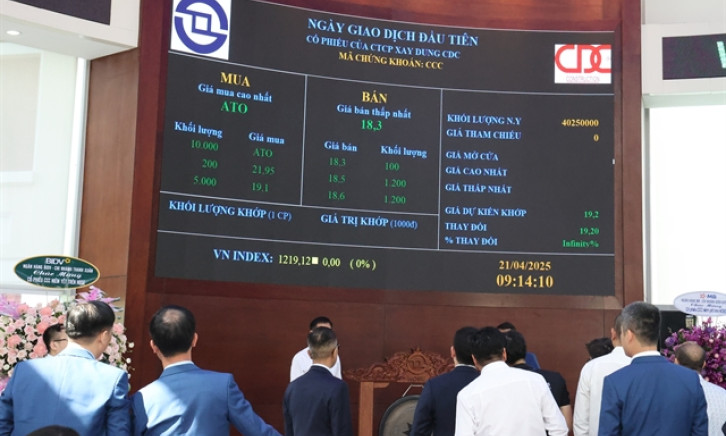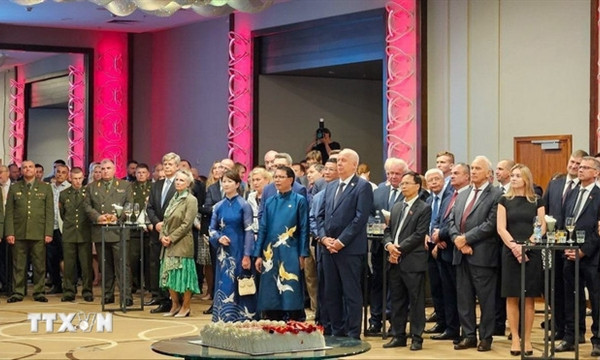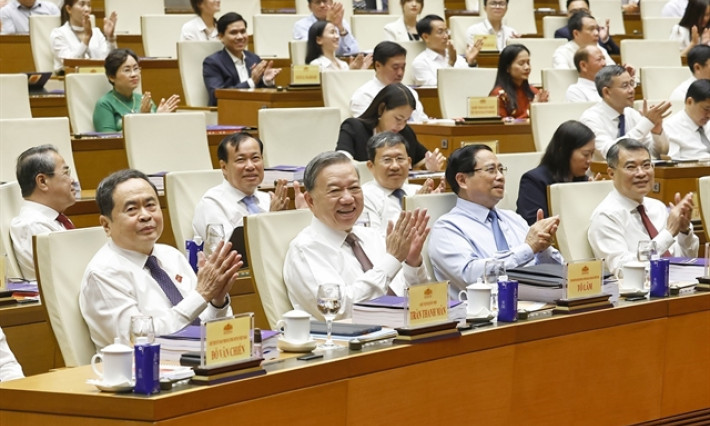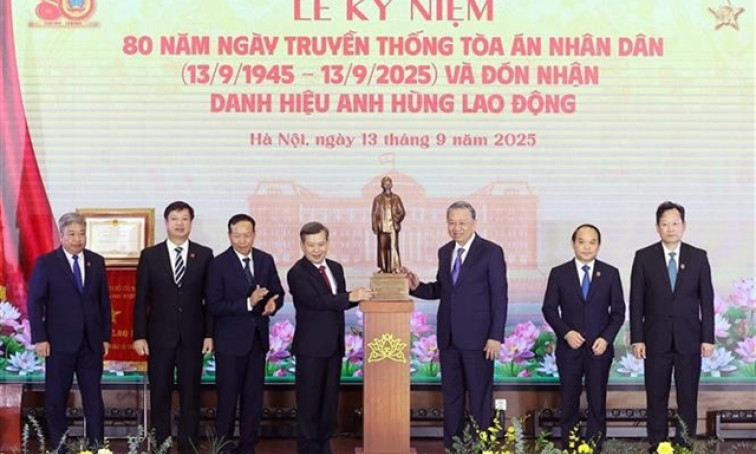Việt Nam boosts supporting industries with development programmes
Việt Nam's supporting industries play a crucial role in the development and competitiveness of key sectors, receiving substantial government investment and support.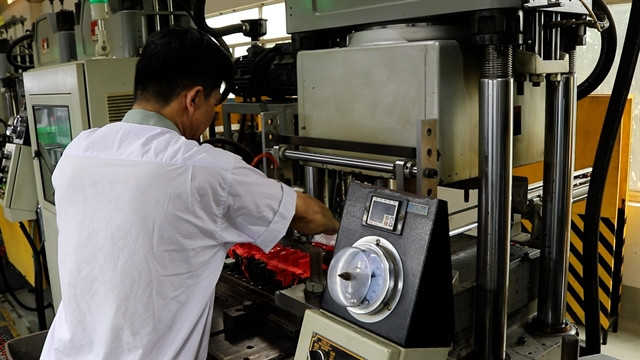
Việt Nam's supporting industries play a crucial role in the development and competitiveness of key sectors, receiving substantial government investment and support.
According to Việt Nam's General Statistics Office, the supporting industry boasts around 5,000 businesses nationwide, with priority export markets being Korea, Japan, China, and the US.
To enhance this sector, a national 2016-2025 programme has focused on helping local firms foster connections with clients and attracting foreign investment.
It also assists Vietnamese businesses in applying international-standard management systems, workforce training and accessing market information to improve their integration into global supply chains.
Financial support is provided for local supporting industries involved in the List of Priority Supporting Industry Products, including preferential interest rates on loans to meet capital needs.
There is substantial support for R&D, including up to 50 per cent funding for pilot production of supporting industry products. Projects establishing R&D facilities can also receive land leases with favourable rent.
Additionally, the Ministry of Industry and Trade (MoIT) has established Industrial Development Centers in three regions of Việt Nam to support businesses and the supporting industry.
Businesses meet global standards
Việt Nam's free trade agreements enable businesses to expand export markets, reduce tariffs, and enhance international competitiveness.
Deputy director of Hồng Ký Mechanical Company Nguyễn Duy Toàn said the country's supporting industry is growing strongly.
"In the past, the industry was not developing. However, the government's support policies and investment have made it grow."
He said foreign companies such as Samsung, LG, and Apple have created strong demand for Việt Nam's supporting industries.
In addition, he said the skills and knowledge of Việt Nam's workforce are improving, helping strengthen this industry's future.
His company has obtained many international certifications, such as CE and UL, which help it access European and US markets. It manufactures electronic welding machines, steel processing machines, and other industrial support products, and has exported to Germany, Turkey, and Australia.
Toàn's company is leveraging trade agreements like the CPTPP, APTA (for ASEAN countries), and EVFTA (between Việt Nam and Europe), reducing tariffs on goods exported from Việt Nam.
Other businesses, such as TBM-Minh Phát Producing-Trading Co Ltd, which manufactures moulds and processes plastic products for medical, technical, interior, and food packaging purposes, also align with global standards.
Its products are mainly exported to Japan and other countries such as the US, South Korea and the Netherlands.
The company's ISO system, which is checked by Japanese customers annually, focuses on environmental issues, factory management, and export goods management.
Product quality is inspected and managed using the Kanban system and Japanese methods.
His company enjoys zero import tax when exporting to Japan under AANZFTA and uses certificates of origin (C/O) from other trade agreements, including the US market.
Supporting programmes for local industry growth
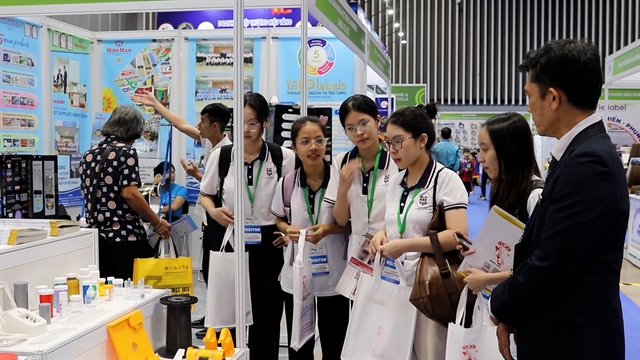
Factory director Tương Lai Co. Ltd Lê Đăng Quốc said that to meet the growing global demand for supporting industries, Việt Nam's Ministry of Industry and Trade, along with other relevant departments and organisations, is providing comprehensive programmes.
The company specialises in custom-manufacturing rubber and technical plastic products for the automotive, motorcycle, and supporting industries.
It has significant export markets in the US, Canada, and Japan.
Vietnamese authorities and international organisations have been collaborating to enhance the quality of the workforce and improve the competitiveness of the domestic support industry.
Tương Lai has participated in these initiatives, sending employees to training courses offered by the World Bank, Samsung, and JICA.
Many companies are ensuring that their staff update their skills in cutting-edge technologies through these programmes to innovate and keep pace with market demands, Quốc added.
These programmes aim to help Vietnamese businesses enhance their knowledge, adopt modern technologies, and optimise operations to meet the needs of FDI companies.
In addition, Tương Lai receives strong support from local authorities, including information about international exhibitions and opportunities to connect with multinational partners to better understand market trends and demands, he added.
He also mentioned that government trade promotion programmes and initiatives to promote Vietnamese products abroad contribute to raising product awareness and finding new business partners.
Many expos have launched this year to promote and boost the growth of support industries in Hà Nội and HCM City, such as the 2024 Sourcing Fair of Supporting Industry with Buyers (SFS), the VINAMAC Expo 2024 and the Supporting Industry Show 2024.
These exhibitions have helped connect hundreds of domestic businesses with those from more than 15 countries and territories, facilitating partnerships and knowledge exchange.
In addition, Việt Nam has implemented tax incentives for supporting industries in the automotive sector to boost domestic production, increase localisation rates and enhance competitiveness.
Accordingly, domestic auto parts manufacturers enjoy a zero per cent import tax rate on imported raw materials, supplies, and components that businesses can not produce domestically.
These efforts support industry growth, helping local businesses integrate into global value chains and boost their competitiveness.


